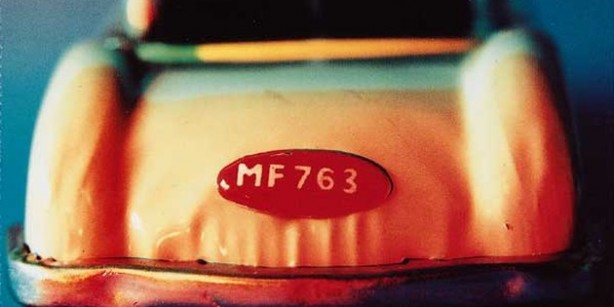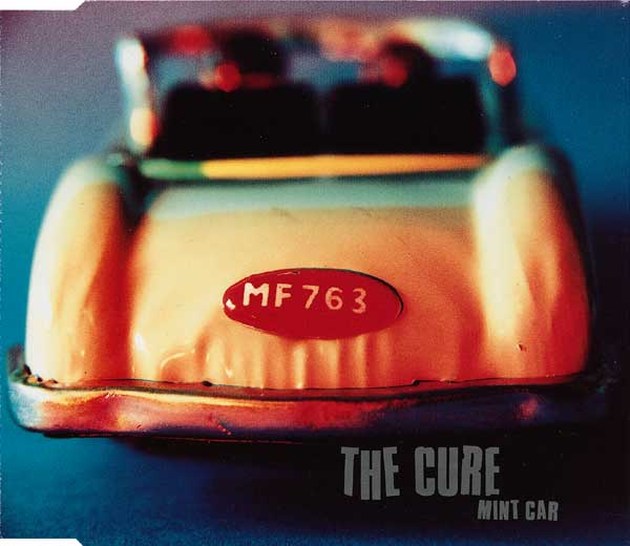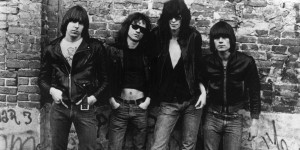 Tech
Tech
REVOLUTIONARIES MONTH: The Cure and their under-appreciated "Mint Car"
by Sarah Kurchak
October 27, 2011
This month’s programming theme on AUX TV (the channel) is musical revolutionaries, a month-long salute to the legendary artists who changed the art form or the industry for the better. Some are well know, others less so, but all are equally important in the ebb and flow of the forever changing musical landscape. Today we look at the Cure, and the under-appreciated “Mint Car.”

The Cure might wear just as much black on the outside as their fellow miserable musical countrymen, but black isn’t always how the band feels on the inside. There’s a range of human experiences that exist in their oeuvre that no other moody Brits can match.
The closest that Joy Division ever came to hope was the fact that heartbreak and agony at least got to sound beautiful in “Atmosphere.” The Smiths and Morrissey have really only offered the fleeting salvation of black humour and the cold embrace of cynicism. Depeche Mode fans get little more than “Just Can’t Get Enough,” and maybe the occasional chance to take a well-meaning jab at Martin Gore’s outfits.
The Cure, on the other hand, have consistently tackled the darkest lows, the most rapturous highs and everything in between in their thirty-five year career. And sitting at the very high end of that emotional spectrum is a three and a half minute ditty called “Mint Car.”
The song, from 1996’s Wild Mood Swings, is the purest expression of love and happiness that the goth rock pioneers have ever written. Even among the group’s more popular—and sometimes notorious—happy songs, “Mint Car” stands out. It’s giddier and sillier than “Love Cats,” more oblivious to outside forces and potential downsides than “Love Song,” “Doing The Unstuck” and “Just Like Heaven” and more constant and all-consuming than “Friday I’m In Love.”
Taken out of context, the tune is, admittedly, ridiculous. If Taylor Swift, or even Coldplay, were to write a song about being in love with someone to the point of being so fizzy that they could burst, the result would be saccharine enough to induce diabetic comas.
But “Mint Car” appeared twenty years into Robert Smith’s body of songs. He already had two of the most famously feel-bad albums of alternative music, Pornography and Disintegration, under his belt and this otherwise unrelentingly ecstatic song carries the weight of everything that came before it. When Smith sings “never guessed it got this good/ wondered if it ever would,” it’s not a throwaway line. It’s not “I never guessed that I’d be this happy because this one time, a boy or girl made me kind of sad,” it’s “never guessed it got this good, because I once stared at pictures of a former lover to the point of major existential crisis, and I’ve been known to open an album by declaring that it doesn’t matter if we all die.”
Even within the context of the appropriately-titled Wild Mood Swings, “Mint Car” is grounded by plenty of songs about misery, romantic disappointment, menace, and more existential angst. It might not be the most popular or well-received Cure album of all time, but none of Mood Swing’s problems stem from the fact that Smith decided to give up and pen a bunch of empty and sappy love songs. He was just as capable of and willing to write lyrics like “I’ll never really get more hope or any more time” and “it seems reality destroys our dreams” as he was to squeal “say it will always be like this/ the two of us together/ it will always be like this/ forever and ever and ever.”
Fat Bob and his intermittently merry band of men have no need or time for empty sentiment. They’ve never been the type to ignore the disturbing side of human existence. So when Smith writes a song like “Mint Car,” you’d better believe that it’s for real. Those three and a half minutes of unadulterated and unabashed joy have been informed and earned by some of the most devastating, haunting and heartbreaking experiences possible.
And if the man who went through Disintegration can genuinely sing about vanilla smiles and strawberry kisses without pretense, cynicism or shame, then maybe there’s some hope for the rest of us.
Tags: Tech, Interviews, News, Joy Division





